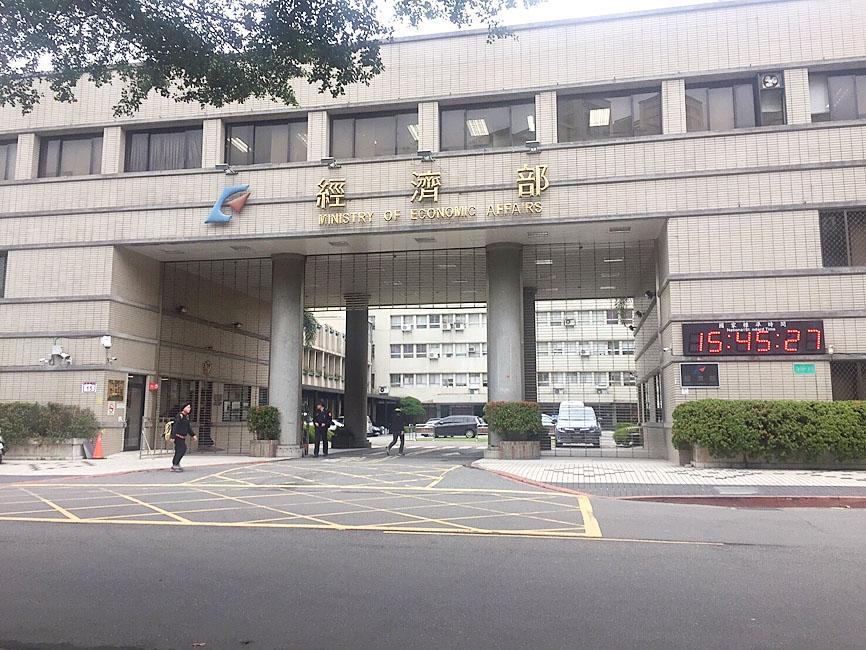Taiwan was ranked as the third-best investment destination, alongside South Korea, in the lastest report by the US-based Business Environment Risk Intelligence SA (BERI), the Ministry of Economic Affairs said yesterday.
BERI also gave Taiwan the highest score for foreign exchange risk, making it the most secure nation in the world regarding foreign exchange.
The report showed Taiwan scored a profit opportunity recommendation (POR) — a gauge that BERI uses to evaluate a nation as an investment destination — of 62, up one point from 61 in its May and August reports.

Photo: Huang Pei-chun, Taipei Times
Taiwan retained its third-place ranking from the two earlier reports, although South Korea tied with it after improving from 60 in August and 58 in May.
Switzerland topped the latest list, with a POR of 68, followed by Norway, with a POR of 63. Finland and Singapore followed in fourth place with a POR of 56.
BERI uses three main indicators to assess investment risk: operating conditions (operations risk), political risk, and foreign exchange and external accounts position (remittance and repatriation factor) risk.
Taiwan scored 60 in operating conditions, placing it third; 46 in political risk, ranking it 14; and 80 in foreign exchange risk, putting it in first place.
The report projected that Taiwan’s POR would increase to 67 in 2025, allowing it to retain its third-place ranking alongside South Korea.
Elsewhere in Asia, Japan scored 51 points, placing it 14th in the world; China scored 50, putting it in 16th place; Indonesia scored 48 to come in at 18th; the Philippines scored 44 for 23rd place; India scored 43, coming in at 24th; and Thailand scored 35 to place at 39th.
Fifty countries were included in the report, with Venezuela placing last with a POR of 20. The global average POR is 44.
BERI releases three reports each year, the ministry said.

INVESTIGATION: The case is the latest instance of a DPP figure being implicated in an espionage network accused of allegedly leaking information to Chinese intelligence Democratic Progressive Party (DPP) member Ho Jen-chieh (何仁傑) was detained and held incommunicado yesterday on suspicion of spying for China during his tenure as assistant to then-minister of foreign affairs Joseph Wu (吳釗燮). The Taipei District Prosecutors’ Office said Ho was implicated during its investigation into alleged spying activities by former Presidential Office consultant Wu Shang-yu (吳尚雨). Prosecutors said there is reason to believe Ho breached the National Security Act (國家安全法) by leaking classified Ministry of Foreign Affairs information to Chinese intelligence. Following interrogation, prosecutors petitioned the Taipei District Court to detain Ho, citing concerns over potential collusion or tampering of evidence. The

‘FORM OF PROTEST’: The German Institute Taipei said it was ‘shocked’ to see Nazi symbolism used in connection with political aims as it condemned the incident Sung Chien-liang (宋建樑), who led efforts to recall Democratic Progressive Party (DPP) Legislator Lee Kun-cheng (李坤城), was released on bail of NT$80,000 yesterday amid an outcry over a Nazi armband he wore to questioning the night before. Sung arrived at the New Taipei City District Prosecutors’ Office for questioning in a recall petition forgery case on Tuesday night wearing a red armband bearing a swastika, carrying a copy of Adolf Hitler’s Mein Kampf and giving a Nazi salute. Sung left the building at 1:15am without the armband and apparently covering the book with a coat. This is a serious international scandal and Chinese

Seventy percent of middle and elementary schools now conduct English classes entirely in English, the Ministry of Education said, as it encourages schools nationwide to adopt this practice Minister of Education (MOE) Cheng Ying-yao (鄭英耀) is scheduled to present a report on the government’s bilingual education policy to the Legislative Yuan’s Education and Culture Committee today. The report would outline strategies aimed at expanding access to education, reducing regional disparities and improving talent cultivation. Implementation of bilingual education policies has varied across local governments, occasionally drawing public criticism. For example, some schools have required teachers of non-English subjects to pass English proficiency

TRADE: The premier pledged safeguards on ‘Made in Taiwan’ labeling, anti-dumping measures and stricter export controls to strengthen its position in trade talks Products labeled “made in Taiwan” must be genuinely made in Taiwan, Premier Cho Jung-tai (卓榮泰) said yesterday, vowing to enforce strict safeguards against “origin laundering” and initiate anti-dumping investigations to prevent China dumping its products in Taiwan. Cho made the remarks in a discussion session with representatives from industries in Kaohsiung. In response to the US government’s recent announcement of “reciprocal” tariffs on its trading partners, President William Lai (賴清德) and Cho last week began a series of consultations with industry leaders nationwide to gather feedback and address concerns. Taiwanese and US officials held a videoconference on Friday evening to discuss the